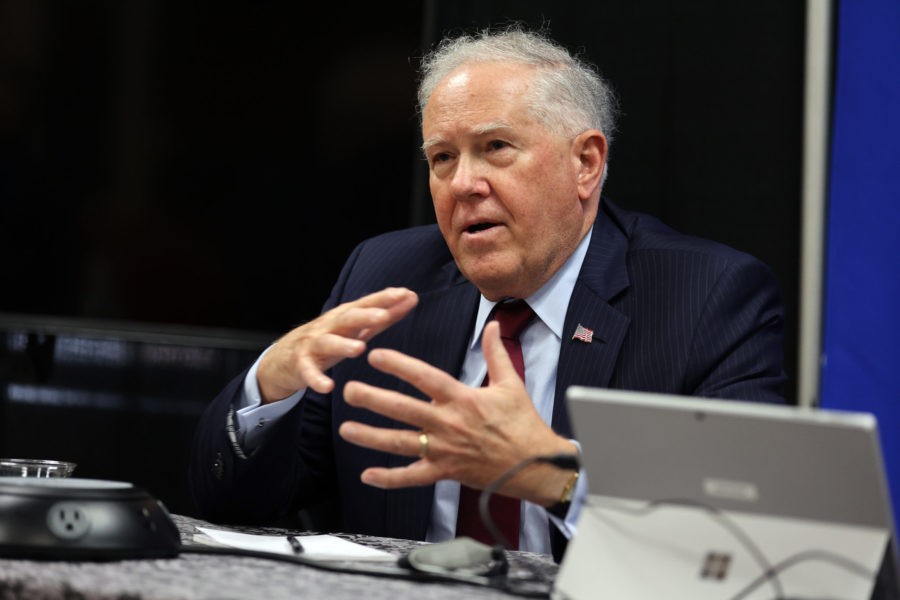Senior U.S. military and civilian leaders expressed concerns about foreign data collection and disinformation as cybersecurity threats.
“I am terrified of what a regime can do once it gains control of information with modern tools, that facial recognition, monitoring where everybody goes on their phones, who they talk to, what they say, what associations they have,” Secretary of the Air Force Frank Kendall said during the Reagan National Defense Forum on Dec. 3.
China and Russia’s renewed invasion of Ukraine were the themes of the day at the annual gathering of top military and security officials and elected leaders at the Ronald Reagan Presidential Library in Simi Valley, Calif.
While much of the discussions were on military challenges posed by China, some leaders raised what they saw as the growing risk of the amount of information collected on foreign citizens by China and other countries, either through cyberattacks or voluminous amounts of publicly available data.
“It’s extraordinary the degree to which China, in particular,—but they’re not the only ones, obviously—are developing just frameworks for collecting foreign data and pulling it in, and in their capacity to then turn that around and use it to target audiences for information campaigns or for other things,” Director of National Intelligence Avril Haines said.
China may be collecting data on Americans without their knowledge, Haines said, prompted by a question about TikTok, a Chinese-owned social media platform popular with U.S. troops.
In a broader discussion on cyber threats, Kendall expressed confidence the U.S. military can prevent cyberattacks on military hardware.
“I was thinking earlier about how my career entirely spans the creation of the digital age and the level of concerns about cyber and what we call cyberspace becoming pervasive and ubiquitous, and you can’t do anything in the security area without thinking about cyber considerations,” Kendall said.
That increasing awareness has paid off, the Air Force’s top boss said.
“You’re never going to be perfect, but you can be highly resilient, and you can be at a point where if you get an unexpected attack, you can recover,” Kendall added. “Generally speaking, military systems are designed with some degree of hardening. They use encryption a lot more, for example, and weapons designers are aware of cyber threats. So it’s hard to go after those targets inherently.”
But U.S. military infrastructure is increasingly connected—including to the commercial internet in some cases, Kendall noted.
“That’s our personnel system, our medical system, our transportation system, our logistics system,” he said. “You have to think about all those things as well as all the weapons systems you build and everything they’re connected to for any function that they happen to have.”
Kendall and others stressed the importance of thinking about cybersecurity more broadly than targeted attacks on specific systems and networks.
“It’s an important point to make that when we’re talking about when we’re using the term cyberattack, there are really two pieces,” Sen. Angus King (I-Maine) said on a panel with Kendall. “One is denial of service, bringing down the electric grid, those kinds of things. The other is disinformation.”
Kendall cited disinformation as one of his significant concerns outside of core concerns about how Space Force and Air Force systems operate.
“There is another aspect of this, and I think it’s that we’re still in a free society, wrestling with how to deal with this new technology,” Kendall said.
Kendall cited older, “crude” techniques such as printed propaganda or television commercials as more recognizable attempts to influence people. But the internet has created new avenues for disinformation. Part of cybersecurity is to ensure that the information people receive through networks is not harmful, he said.
“One of the things I think we’re going to have to do is we’re going to have to become much more sophisticated consumers,” Kendall said. “A lot of us are still very susceptible to political influence by people we trust. I think we have to work on that as a society. Or we could go down a road that once we get down it, we get into a position where it can be very, very hard to recover.”

